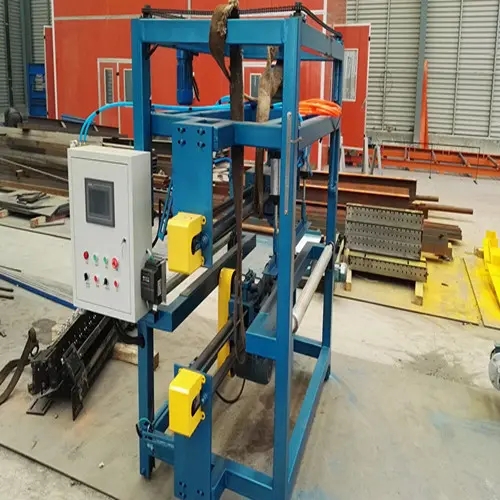
Roof Tile Roll Forming Machine An Essential Tool for Modern Construction
In the ever-evolving landscape of construction and architecture, the demand for high-quality, durable roofing materials has never been more pronounced. One of the standout innovations in this area is the roof tile roll forming machine. This advanced piece of machinery not only streamlines the production of roof tiles but also enhances the quality and efficiency of roofing projects, making it an essential tool in modern construction.
Understanding Roof Tile Roll Forming Machines
A roof tile roll forming machine is a specialized equipment that transforms metal sheets into roofing tiles through a continuous roll-forming process. The machine utilizes a series of rollers that shape and bend metal sheets, typically made from steel or aluminum, into profile designs that mimic traditional tile appearance. This production method allows manufacturers to create various styles of roof tiles, such as traditional clay, slate, or modern designs, all while ensuring strength and durability.
Key Advantages of Using a Roof Tile Roll Forming Machine
1. Efficiency in Production One of the most significant advantages of the roof tile roll forming machine is its high production efficiency. The automated process reduces the time required to cut, shape, and assemble roofing materials. This efficiency not only shortens the overall construction timeline but also helps in managing labor costs effectively.
2. Customization Options With the ability to produce a variety of tile designs and colors, manufacturers can easily tailor their products to meet the aesthetic demands of clients. This customization capability opens up endless possibilities for architects and builders, allowing them to create unique roofing solutions that enhance the overall appearance of buildings.

3. Material Savings The roll forming process minimizes wastage of raw materials. Since the machine uses a continuous feed of metal, it significantly reduces scrap material compared to traditional manufacturing methods. This reduction in waste not only benefits the environment but also lowers production costs.
4. Durability and Strength Roof tiles produced using roll forming machines are known for their robustness. The process creates tiles that can withstand severe weather conditions, including high winds, heavy rains, and snowfall, ensuring long-term performance and reliability. This durability is an attractive feature for homeowners and builders alike.
5. Ease of Installation The tiles produced by these machines are designed for quick and easy installation. Their precise dimensions and uniformity facilitate a smoother installation process, reducing the likelihood of errors or misalignment on the roof structure.
6. Cost-Effectiveness Investing in a roof tile roll forming machine can lead to significant financial benefits over time. Not only does it streamline production and reduce waste, but it also allows manufacturers to offer competitive pricing for high-quality roofing materials.
Conclusion
In conclusion, the roof tile roll forming machine represents a pivotal advancement in roofing material production. Its benefits extend from increased efficiency and customization to enhanced durability and cost-effectiveness. As the construction industry continues to grow, ensuring high-quality materials will be paramount, and the roof tile roll forming machine is at the forefront of this evolution. For manufacturers, builders, and architects looking to innovate and improve the roofing market, embracing this technology is not just an option but a necessity for success in the modern economy. As we move forward, it is clear that this machinery will play a pivotal role in shaping the future of roofing solutions.